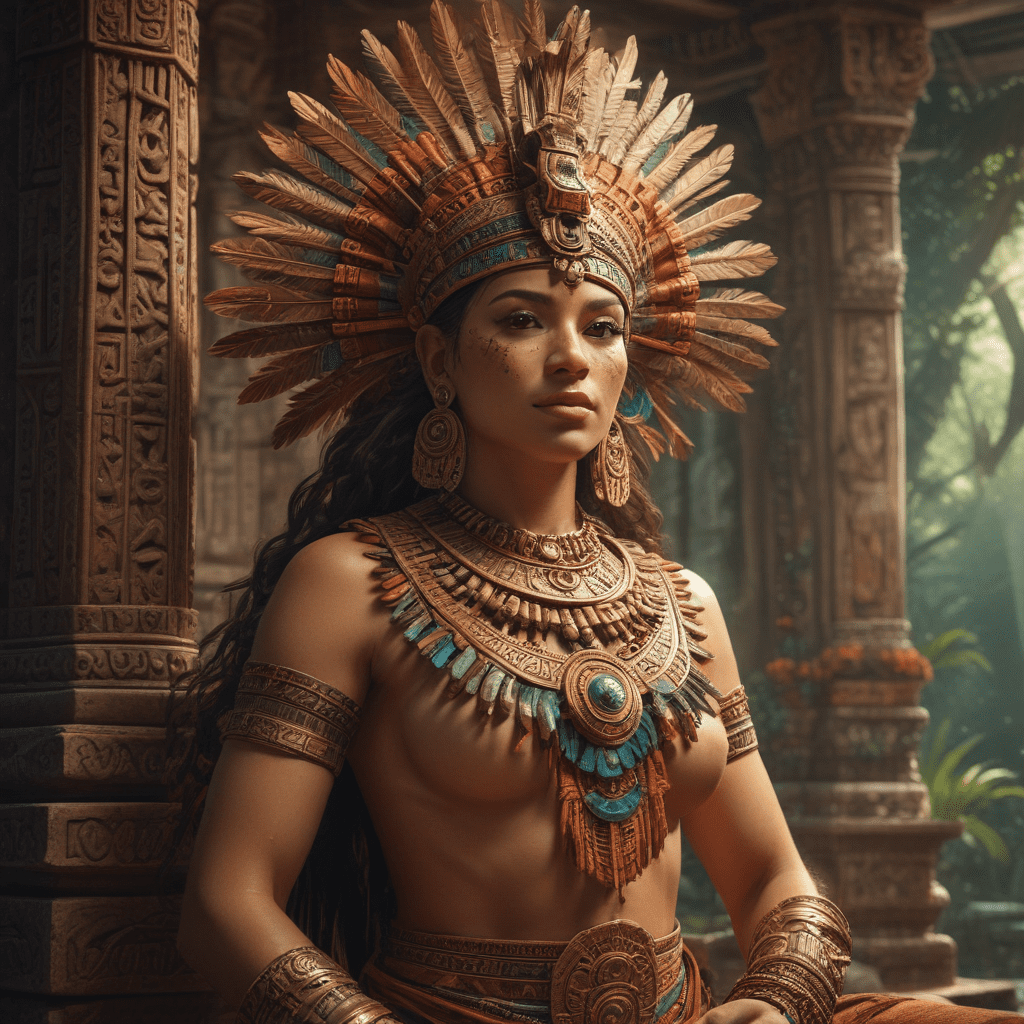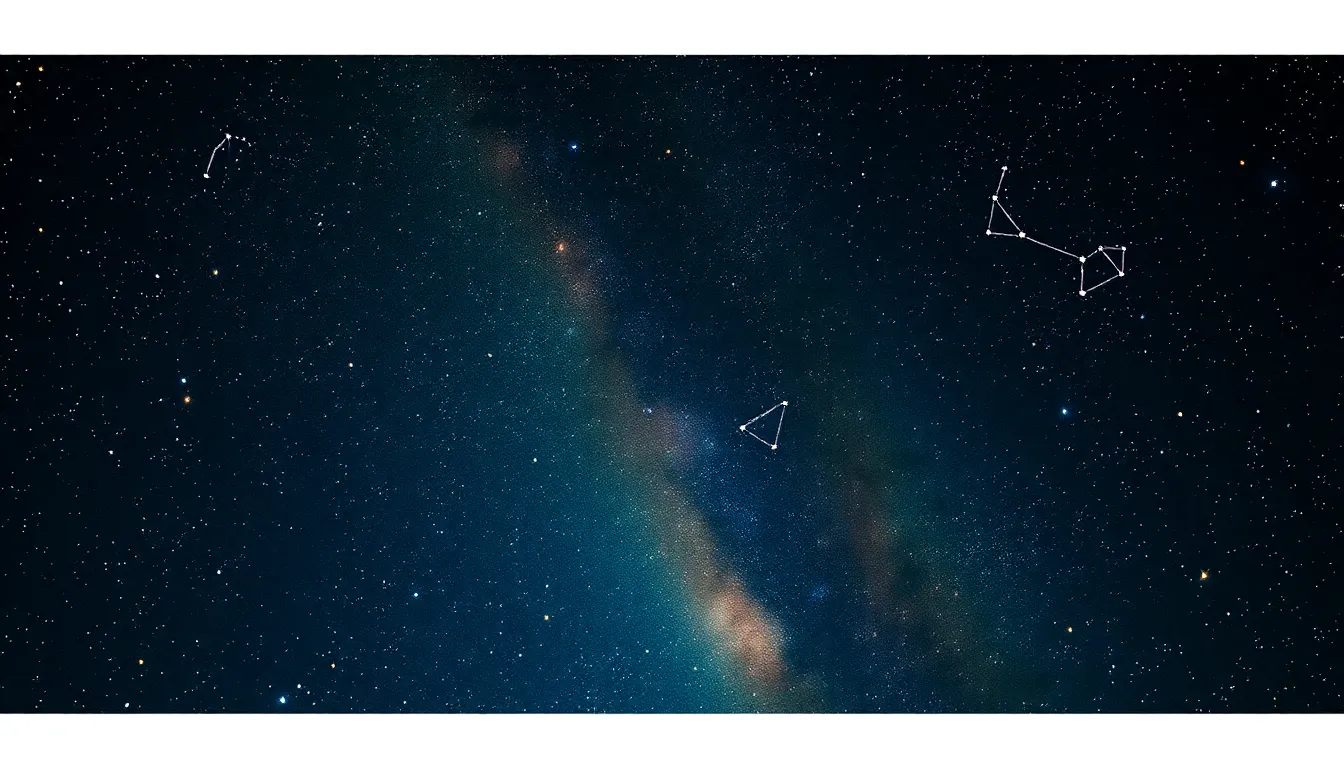Exploring the Powerful Deities of Maori Mythology
1. Introduction to Maori Mythology: A World of Spirits and Ancestors
Maori mythology, the traditional beliefs and stories of the Māori people of New Zealand, is a rich tapestry interwoven with ancestral spirits, powerful deities, and epic tales of creation and transformation. This mythology provides a deep understanding of the natural world, the interconnectedness of life, and the importance of honoring ancestors.
Maori mythology is a vibrant and dynamic system of beliefs that has played a critical role in shaping the culture, identity, and traditions of the Maori people for centuries. Their world is populated with a diverse cast of gods, goddesses, heroes, and mythical creatures, each playing a unique role in the ongoing story of the universe. Their mythology encompasses stories of creation, genealogy, warfare, and the journeys of ancestral heroes, providing a framework for understanding the origins of the world, the nature of the universe, and the place of humanity within it.
2. The Creation Myth: From Darkness to Light, From Chaos to Order
The Maori creation myth tells the story of how the world came into being, providing a foundation for their understanding of the universe and their place within it. According to the myth, at the beginning of time, there was only darkness and emptiness, represented by Rangi (the sky father) and Papa (the earth mother) who were locked in an embrace, preventing any new life from being born.
Their children, the gods, grew impatient with the darkness and the lack of space and decided to separate their parents. The god Tāne, who would later become the god of the forest, was the first to rise up and push his parents apart, creating the space for the world as we know it. This act of separation brought light and life into the world, and gave rise to the natural world we see today.
3. The Significance of the Gods: Shaping the Land, the People, and the Natural World
The Maori gods are not distant, impersonal beings. They are powerful forces that represent the fundamental elements of the natural world and the fundamental aspects of human life. These gods are seen as being responsible for shaping the land, the people, and the natural world.
Each god embodies a specific aspect of nature or human existence, and their actions and interactions are reflected in the world around us. They are both creators and protectors, shaping the land and influencing the destinies of the people. Their stories, passed down through generations, serve as a guide for understanding the interconnectedness of all things, reminding us of our responsibility to respect the earth and its resources.
4. Rangi and Papa: The Heavenly Father and the Earth Mother
Rangi and Papa, the sky father and earth mother, represent the fundamental elements of creation – the sky and the earth. Their enduring embrace symbolizes the closeness and interconnectedness of the natural world.
Rangi, the sky father, is often depicted as a vast, expansive figure, representing the sky, the heavens, and the celestial bodies. Papa, the earth mother, is associated with the earth, the land, and the fertility of nature. Their separation, brought about by their children, gave rise to the world as we know it, but their importance continues to be recognized in Maori tradition.
5. Tane Mahuta: The God of the Forest, Protector of Nature
Tāne Mahuta, the god of the forest, is one of the most revered figures in Maori mythology. He is often depicted as a tall, strong figure, symbolizing the power and majesty of the forest. In the creation myth, he was responsible for separating Rangi and Papa, creating the space for the world. He is also the protector of all that grows in the forest, including the trees, the birds, and the animals that call it home.
Tāne Mahuta is seen as the embodiment of the forest's life and vitality, and his name is often used to honor the largest and most significant trees in New Zealand. He reminds us of the importance of respecting the natural world and the vital role that forests play in sustaining life.
6. Maui: A Trickster and Hero, Shaping the World through Ingenuity
Maui, a legendary figure in Maori mythology, is known for his cunning, his daring feats, and his ability to shape the world through his ingenuity. He is often portrayed as a trickster god, a mischievous but resourceful figure who uses his wit and skills to benefit humanity. He is both a powerful force and a relatable character, showcasing the resourcefulness and ingenuity of the Maori people.
One of the most famous stories about Maui is his attempt to slow down the sun. The sun was moving too quickly across the sky, leaving little time for people to work and play. To solve this problem, Maui devised a plan to capture the sun using a rope made from the hair of his grandmother. He waited until the sun was low in the sky and then threw his rope around it, pulling the sun closer to the earth and slowing its journey. This act of slowing down the sun resulted in longer days for the Maori people, giving them more time to work, hunt, and enjoy life.
Maui’s story highlights his role as a cultural hero who challenges the natural order and improves the lives of humans. However, Maui’s adventures are not confined to the realm of the sun. He is also credited with pulling New Zealand up from the ocean floor, a feat that illustrates his strength and influence over the natural world.
7. The Gods of War and Destruction: Tū and Ngātoro-i-rangi
While many Maori deities embody creation and protection, some hold dominion over conflict and destruction. These deities, often associated with war, battles, and natural disasters, remind us of the power and unpredictability of the natural world and the challenges faced by the Maori people.
Tū, the god of war and agriculture, represents the strength and ferocity of both nature and humanity. His domain encompasses warfare, hunting, and the cultivation of the land, reflecting the duality of humans – capable of both creation and destruction. Tū is often depicted as a fierce warrior, ready to defend his people and his land. His presence in Maori mythology reminds us of the importance of courage, strength, and the readiness to protect one's community.
Ngātoro-i-rangi, the god of fire and volcanoes, represents the destructive power of nature. He is associated with volcanic eruptions and earthquakes, reminding us of the forces that lie beneath the earth's surface. His presence highlights the need to respect the power of nature and understand the dangers it can pose.
8. The Realm of the Gods: Awa-nui-a-Tinirau, the Otherworldly Home
Awa-nui-a-Tinirau, also known as Te Papa-o-Rehua, is the mythical realm where the Maori gods reside. This otherworldly home is a place of immense beauty, richness, and cultural significance. It is a place of wonder and mystery, where gods and goddesses interact, where spirits dwell, and where the origins of the world can be traced.
Awa-nui-a-Tinirau is not just a location, but also a symbol of the connection between the physical world and the spiritual realm. It represents a place where the gods and ancestors continue to exist and influence the lives of the living. The stories and legends associated with this realm connect the physical world to the spiritual world, reminding us of the ongoing influence of our ancestors and the importance of honoring them.
9. Maori Mythology in Modern Life: Influence on Art, Culture, and Identity
Maori mythology continues to play a vital role in shaping the culture and identity of the Maori people in the 21st century. These stories and legends have influenced their art, music, dance, language, and their understanding of the world.
Maori artworks often depict scenes from mythology, using traditional materials like wood, bone, and stone. Traditional songs and dances tell stories about gods, heroes, and ancestors, keeping the mythology alive through performance. The Maori language is rich with words and phrases derived from mythology, reflecting the deep connection between language and belief.
The influence of Maori mythology is evident in contemporary art, literature, and film. Modern Maori artists draw inspiration from traditional stories, reinterpreting them for a modern audience. Writers incorporate elements of mythology into their novels and poems, using themes and characters to explore contemporary issues. Filmmakers use Maori mythology as a source of inspiration for their films, creating visually stunning and captivating stories that resonate with both Maori and non-Maori audiences.
10. The Ongoing Legacy: Exploring the Enduring Power of Maori Mythology
Maori mythology is not just a collection of stories; it is a living, breathing system of beliefs that continues to guide and shape the lives of the Maori people. It provides a framework for understanding the world, their place within it, and their relationship with the natural world. It is a source of inspiration, strength, and identity.
The enduring power of Maori mythology is evident in the continued relevance of its themes, characters, and stories. Its messages about the interconnectedness of all things, the importance of honoring ancestors, the power of nature, and the significance of community continue to resonate with people around the world. As we explore the world of Maori mythology, we gain a deeper understanding of the rich cultural heritage of the Maori people and the enduring power of storytelling.
FAQ
Q: What is the most important deity in Maori mythology?
A: There is no single most important deity in Maori mythology. Each deity holds a significant role in shaping the natural world, human existence, and Maori culture.
Q: What is the difference between gods and ancestors in Maori mythology?
A: Gods are powerful figures who shaped the world and its natural elements. Ancestors are individuals who played important roles in Maori history and continue to influence the living.
Q: How does Maori mythology differ from other mythologies?
A: Maori mythology is unique due to its focus on the interconnectedness of nature and humanity, the importance of ancestors, and the emphasis on the natural world.
Q: Is Maori mythology still relevant today?
A: Yes, Maori mythology is still relevant today. It continues to shape Maori culture, identity, and understanding of the world.
Q: Where can I learn more about Maori mythology?
A: You can find resources online, in libraries, and at museums that specialize in Maori culture.




